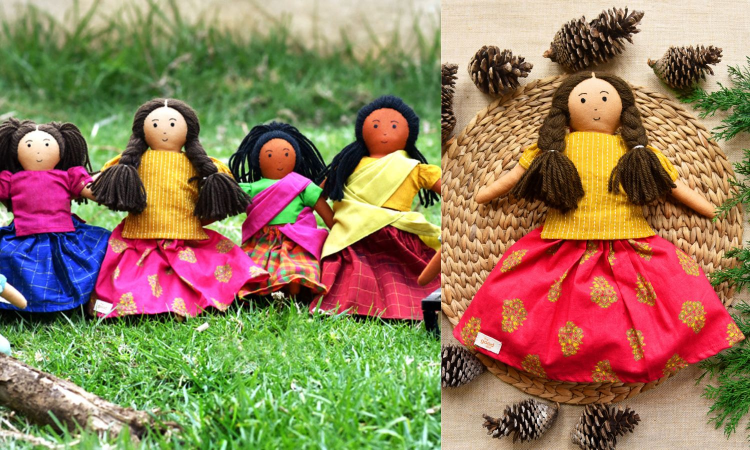Empowering Nilgiris women, one doll at a time
Sunita, a craft enthusiast who could pick up almost any handmade skill with ease, took the lead.

Dolls are made from upcycled, pre-consumer textile waste, Nilah doll
CHENNAI: After years of working in the corporate world, Suhas Ramegowda and his wife, Sunita, left their high-paying jobs in search of a more fulfilling life. The couple moved from Bengaluru to the Nilgiris with a simple idea to live off the grid and disconnect from urban hustle and social constructs. But what was meant to be a quiet, self-sustained life soon took a different turn. “As we settled in, we became part of the local community and started observing the real issues people here were facing. There were serious livelihood challenges, especially for women. We couldn’t just look away. We felt we had to do something,” Suhas recalls.
Sunita, a craft enthusiast who could pick up almost any handmade skill with ease, took the lead. She began by training five local women in patchwork quilting in their living room. “Women are often the most vulnerable in rural communities. We wanted to create something that could empower them while being sustainable.”
What began as a small quilting circle gradually evolved and the duo launched their venture called The Good Doll. Over the first few years, their focus remained on skill development and capacity building. Then, a charming twist changed everything. “Alongside the quilts, Sunita stitched a fabric doll to go with the quilt. To our surprise, the doll got more attention than anything else,” Suhas says with a smile.
Suhas Ramegowda and Sunita
That simple, handmade doll sparked an idea. The couple began doing market research and speaking to parents. What they discovered was a gap in the toy market, particularly in the doll category. “There are plenty of wooden toys and some conscious, meaningful board games. But dolls? It’s mostly just Barbie or Disney princesses, and they are all Western, and most follow the same mould: fair skin, thin bodies, and idealised features. We realised how deeply this influences a child’s sense of beauty and identity,” he shares.
And that’s how Nilah was born. Nilah is a Nilgiri girl, the central character of a lovingly designed doll line. She comes with an eight-member family, each with a story and personality. The dolls are handcrafted by rural and indigenous women of the Nilgiris using upcycled, pre-consumer textile waste sourced from across Tamil Nadu.
“Our dolls are body-positive, colour-inclusive, and rooted in real stories. We wanted children to see themselves in their dolls, to feel represented.” The initiative has grown from a skill training project to a social enterprise blending craft and commerce. But it doesn’t stop at dolls. The team is working on expanding Nilah’s world, with illustrated storybooks, comic strips, animation series, and more. “Our dream is for Nilah to be as loved and iconic as Barbie, but rooted in our culture, values and realities,” says Suhas.



